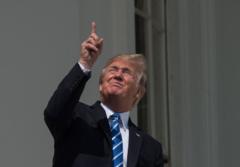Trump's remarks come at a time when the topic has gained traction in legislatures. While many still believe that standard time is beneficial for sleep cycles and general well-being, others argue for making DST permanent to maximize evening light, which proponents claim could reduce crime rates and improve road safety after dark commutes. This longstanding ritual, which originated during World War I as a fuel conservation measure, remains divisive despite previous legislative efforts, such as the Sunshine Protection Act, aimed at making DST permanent.
Historically, the United States adopted seasonal clock changes in 1918 but repealed it shortly after due to farmers' complaints. The practice was reinstated during World War II and has been standardized since 1966, allowing states like Hawaii and most of Arizona to opt out. A recent study by London School of Economics professor Joan Costa-i-Font emphasized the negative impacts of DST on health, estimating that eliminating the practice could boost individual economic output significantly.
Despite Trump’s proposal and public polls indicating a preference for abolishing DST, the journey towards reform is fraught with challenges, as seen in previous attempts to legislate changes. The debate illustrates a complex intersection of economic, health, and lifestyle considerations that continues to evolve as society evaluates traditions in the context of modern needs.
Historically, the United States adopted seasonal clock changes in 1918 but repealed it shortly after due to farmers' complaints. The practice was reinstated during World War II and has been standardized since 1966, allowing states like Hawaii and most of Arizona to opt out. A recent study by London School of Economics professor Joan Costa-i-Font emphasized the negative impacts of DST on health, estimating that eliminating the practice could boost individual economic output significantly.
Despite Trump’s proposal and public polls indicating a preference for abolishing DST, the journey towards reform is fraught with challenges, as seen in previous attempts to legislate changes. The debate illustrates a complex intersection of economic, health, and lifestyle considerations that continues to evolve as society evaluates traditions in the context of modern needs.


















